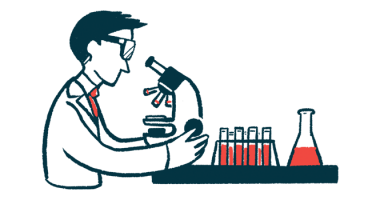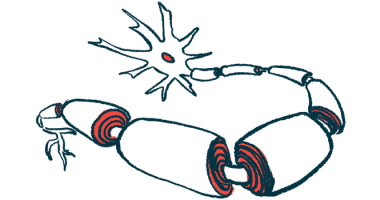CMT Foundation joins nurse on solo sail to raise awareness
Jenny Decker aims to be first person with CMT to circumnavigate globe

The CMT Research Foundation is joining Jenny Decker, a nurse with Charcot-Marie-Tooth disease (CMT) who last summer set sail on a solo trip around the world to raise awareness about the disease.
The trip, which Decker named Just A Lap, could take about three years. If she succeeds, she’ll make her way into the Guinness Book of World Records as the first person with CMT to sail around the world on her own.
“My goal is to raise awareness of CMT and help raise funds for the CMT Research Foundation, which has built an extraordinary record of success in funding the right kinds of research projects to find treatments or a cure for all types of CMT,” Decker said in a press release.
CMT Research Foundation CEO Cleary Simpson said the organization will track Decker’s progress on its website.
“In spite of CMT-related problems with her grip, balance and agility, Jenny is attempting something that few folks in perfect health would attempt. She is an inspiration to the entire CMT community and shows us all what ‘Unstoppable’ can really mean,” Simpson said. “You go, Jenny!”
Decker, 40, wasn’t correctly diagnosed until she was in college. She and her mother have CMT type 1A, which is often caused by an extra copy of the PMP22 gene. The gene codes for a protein in myelin, the insulating covering around nerve fibers.
The extra copy results in too much protein being produced. Because it can’t be processed normally, the protein builds up and impairs the formation of myelin, which affects the transmission of nerve signals, resulting in weaker messages between the limbs and the brain.
Sailing solo for CMT awareness
“Grabbing lines and reeling things are difficult for me, so I crawl a lot on the boat. I have to hold on to everything. My brain is sending signals to my arms and legs ,but they really don’t want to listen, and fine motor skills are very difficult,” Decker said.
To fit her physical needs, Decker adapted her sailboat, Tiama, with special gear. And she wears a harness to avoid falling overboard, as symptoms like difficulty walking can make standing on a rocking sailboat even harder.
Decker began her trip from Hawaii last June and has sailed more than 3,200 miles alone in the Pacific Ocean. She is now docked for the cyclone season in Fiji, where she is fixing her sailboat, getting supplies, and sharing her story.
A trauma nurse for 17 years, Decker often finds she is the sole medical help in remote areas where she anchors her sailboat, so she volunteers her time and skills to care for any medical emergencies that may arise in those places.
“I want to continue to provide medical aid where needed throughout my sailing,” Decker said. “I am currently working on stocking my vessel with more medical supplies to be able to supply lifesaving medical care along my journey.”
Decker said “this journey is to inspire all individuals to challenge themselves, set goals, go for them, and share all triumphs or heartaches … It is what makes us feel the most alive as humans and connects us.”
In 2016, Decker became the first person to kayak alone around Hawaii’s Big Island. She collected more than $10,000 for CMT research, according to her GoFundMe page, where she started a fundraiser for Just A Lap.







